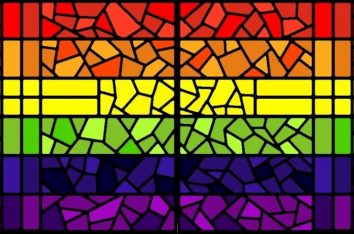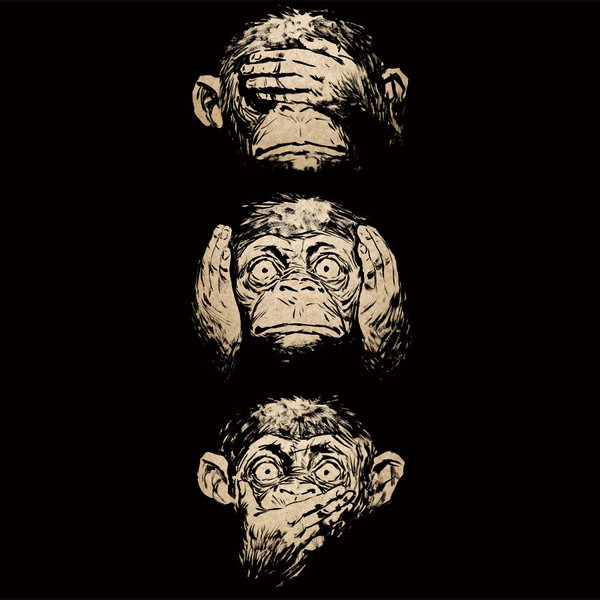 One of the most unfortunate phrases in the English language is “He’s only human.”
One of the most unfortunate phrases in the English language is “He’s only human.”
The assumption lurking behind it is that humanity is akin to weakness, like a crutch, and is therefore something to be ashamed of. I touch on this in the book I am currently writing:
A proper Christology reminds us that receiving heavenly grace does not force upon us an entirely new operating system or delete everything on our human hard drive, but affirms all the good stuff that we have downloaded previously (even providing the occasional update when necessary).
I am reminded of G.K. Chesterton’s response to those who would seek to dismiss the Church’s liturgical feasts and festivals due to their being of pagan cultic origin: “They might as well say that our legs are of pagan origin. Nobody ever disputed that humanity was human before it was Christian; and no Church manufactured the legs with which men walked or danced, either in a pilgrimage or a ballet.”
To put it another way, “Christian ideas and practices resemble pagan human ones? No shit.”
For my part, relating to someone who makes no religious claims, but who is in touch with his or her humanity, is much easier than identifying with somebody whose religion seems to stifle or swallow their human side. Forget identification, I can barely stand to be in the same room with such a person.
We all know the kind of people I am referring to: fixed, plastic smile; crippling fear of vulnerability; spiritual platitudes aplenty. One can’t help but feel sorry for these folks (especially if you used to be one), for they are so paralyzingly afraid of all their human parts that they feel the need to mask everything about themselves that threatens to divulge the fact that they are mere men instead of a demigod or angel.
Concerning the schizophrenic desire on the part of many to play a role instead of being their true selves, Thomas Merton writes:
Alienation begins when culture divides me against myself, puts a mask on me, gives me a role I may or may not want to play. Alienation is complete when I become completely identified with my mask, totally satisfied with my role, and convince myself that any other identity or role is inconceivable.
The man who sweats under his mask, whose role makes him itch with discomfort, who hates the division in himself, is already beginning to be free. But God help him if all he wants is the mask the other man is wearing, just because the other one does not seem to be sweating or itching. Maybe he is no longer human enough to itch (or else he pays a psychiatrist to scratch him).
Unfortunately it is not just culture that can “divide us against ourselves,” the church can do it too. This happens by way of the slogan mentioned at the beginning of this post: Humanity is mistrusted and being human is subtly apologized for, to the point where divinity “mercifully” swallows humanity.
Christologically-speaking, such a person is a monophysite. Individually-speaking he’s kind of a douche.
In summary, the more we hide our humanity beneath a spiritual or religious mask, the more we lose the integrity of our souls. In fact, “integrity” simply means “wholeness” (like how an integer is a whole number), meaning that suppressing or burying our humanity actually (and ironically) ends up splitting us in two, and we forget which one of us is real.
Thus the greater the degree to which we avoid grappling with our own humanity, the more hopeless will become our thoughts, and the more frenetic will become our activity as we seek to distract ourselves from our own existential schizophrenia. “[Such a man] becomes his own slave driver,” Merton says. “A shadow whipping a shadow to death.”
But to borrow a line from the song which gave this post its title,
I can’t help the feeling
That I could blow through the ceiling,
If I’d just turn, and run.
My nickel’s worth of free advice? If you are in a situation where you feel forced to don a mask or put forth a fake plastic self — either because the culture is forcing you to, or the church is — then please know that the walls and ceiling that cause your claustrophobia are falsely concocted, and that there really is the freedom for authenticity and truth. There really is room for your humanity to breathe.
There really is space to run.




[…] [Read more] […]
This is really good, thought provoking. A couple of thoughts that came to mind…
This fear of vulnerability, of being perceived weak, when you really think about it seems to fly in the face of what Jesus did.
The all powerful Creator of the universe humbled Himself to become man born of a woman. He suffered and died for us. Our God died in what was meant to be the most humiliating manner: the cross. It was a symbol of terror used by the state to suppress the masses. God takes this symbol and flips it on its head. We now hold this same symbol up as a sign of victory! God won through embracing what many would describe as weakness. The weak are strong. That is the foolishness of the Cross.
Any perceived weakness in embracing your true self is from the perspective of the world, not our creator.
God created us; God become one us. We should not be scared or embarrassed to be human. God’s Grace frees us to be ourselves, to be fully who we were meant to be. He elevates us to children of God, to join the family with Jesus as our eldest brother. We have nothing to hide.
God didn’t put on a mask; He truly became one of us. Jesus laughed. Jesus wept. Jesus suffered. And so shall we.
If we put on a mask, it is only to deceive ourselves. God sees through our masks. We can’t hide from God. The truth is God fully knows us, and fully loves us. And that, deep down, is what we most desire.
Thanks for the comment, Lane.
I think for many religious types it is this very hurdle that is hardest to clear. We see God as angry or impatient with our humanity, as though (1) He weren’t a Father, and (2) the Incarnation never happened.
A comment about you elsewhere:
http://www.whitehorseblog.com/category/the-jealousy-narrative/
Yes, more talk about the mystery of the Incarnation itself and it’s implications. You hear over and over about Jesus dying for our sins (and rightfully so!). But it all starts with the Incarnation. It is so central. Not only does the atonement depend on it, we wouldn’t even know about the Trinity without the Incarnation; the knowledge of the Holy Trinity is an implication of the revealed truth of the Incarnation.
I get your point but I’m not so sure masking is categorically bad. Maybe you don’t mean to say that exactly, but I think we do “put on” for good reasons sometimes. Isn’t that part of life in the inter-advental age? Is it possible that this de-masking concept in whatever form could be a version of immanentizing the eschaton (sorry to use a buzz phrase)?
Affirming the intrinsic goodness of our humanity, and pushing back on hyper spiritual tendencies to swallow it up, is a good thing. I’m just not sure being human means removing all stops on our vulnerability and weaknesses.
Of course we should laugh politely at bad jokes at parties. But I am referring to the fear of ever opening up about struggles or tipping your human hand for fear of being ostracized by all the spiritual people.
That’s how I remember evangelicalism. It was very isolating.
Sure, I remember as well. But even then the “mask” can simply be a way of protecting oneself against spiritual abusers. Lame maybe, but I guess if we’re wanting to be mindful of our humanity, I like giving room for people to at least self-preserve and not feel guilty for it. Maybe it’s a blurred line between being honest with others and self-preservation.
Zrim,
” I like giving room for people to at least self-preserve and not feel guilty for it. Maybe it’s a blurred line between being honest with others and self-preservation.”
Right, there is a balance that should be struck between openness and self-preservation, however you should trend towards openness and vulnerability with people close to you (in fact, that’s how you get people close to you in the first place). If you find that you have to put on a mask, especially if it feels stifling, and even more especially if you wear it only around other Christians, that’s a problem.
Lane, it’s true that our more intimate relationships entail and require a greater vulnerability, but at the same time I’d still want to advocate for preservation even then, of self and the other. It’s how human beings seem to actually work for better or worse. Maybe it sounds archaic or whatever, but I actually do think that human relationships need some degree of invulnerability among their participants in order to thrive. This isn’t to promote selfishness, group-think, dishonesty, or some other vice. It’s just to say that this proposed virtue of almost total vulnerability has always struck me as a variant of perhaps the same thing that animates the masking only in the other direction. Both make me uncomfortable.
Or maybe I’m just a repressed-lower-brain-stem-reptilian-male.
Zrim,
“It’s just to say that this proposed virtue of almost total vulnerability has always struck me as a variant of perhaps the same thing that animates the masking only in the other direction. Both make me uncomfortable.”
Interesting. I guess it depends on what is the motivation either for the mask, or for the possible self-destructive vulnerability. Obviously, we are called to:
“Love the Lord your God … and, Love your neighbor as yourself.”
This implies that you love yourself to some extent (obviously not before God, and not selfishly). However, I think the mask not only keeps you from loving your neighbor, but it also can entail a dis-love for self. Which I think is what Jason is driving at. Your humanity is made in God’s image, and it has also been redeemed by Christ. Fear shouldn’t stop you from being yourself, and fear shouldn’t stop you from loving others and God.
You mentioned virtue, I think this touches on the virtue of humility. As I’ve heard it said: “humility is not thinking less of yourself, it is thinking of yourself less”. People who put on masks might be doing so out of a sense of pride, a pride of how they are perceived by others. In religious contexts, this could be a prideful self-righteousness. Humility does not mean thinking less of yourself, but making an honest appraisal – especially accounting for the fact that every person has inherent dignity.
Lane, agreed–when I said my point isn’t to promote selfishness, group-think, dishonesty, or some other vice, pride and self-righteousness would be included in those other vices.
I’d also think fear is another vice. Again, this isn’t to make things safe for vice. It’s just to say there’s a place in ordinary human life (between Eden and the new creation) for invulnerability, the kind that actually helps serve the interests of both self and neighbor as you say. Try an example. A man thinks he’s always had potential to achieve more than he has but the perceived trappings of marriage and family hindered that, but he keeps that vulnerability masked for the sake of those around him. But if he goes with the “I gotta be me” thing, it’s hard to see how this doesn’t end up doing more harm than good. At the very least, can we concede that being true to self has its disadvantages?
Zrim,
Ah, I think I see what you are saying, and I agree. What I would add is that acting on the impulse, and sharing the struggle of said impulse are two different things. Removing the mask wouldn’t necessarily mean freely acting on every impulse, but not denying their existence and maybe sharing the struggle with others (close friends/clergy).
This masking of self is exactly why I stepped away from fundamentalist/evangelical Christianity. I was so far removed from my actual self that it took three years to find it and flourish.
I believe having the ability to recognize our own vulnerabilities and draw from them can bring about strength we may not have even known we possessed in the first place. Our humanity is precious, and we should celebrate it as best we can.
Right on, Amanda!
Man you are sounding more and more like an atheist. I too, went from Calvary to reformed circles to catholicism and finally was like “who the hell am I kidding!” Its all non-sense and holding on to the last lil thread is a lil tough, but we can just let go and let……well let go. I have to thank god for NT Wright and JDC…..JDC in particular.
JDC, juvenile detention center?
Lane, that reminds me of a funny story. A long time ago (in a galaxy far, far away) I was a seminary student. And I had to do a pastoral care stint over a summer. I took a gig at the local Christian outfit for troubled adolescents called Wedgewood. Actually these were kids on lockdown: one building split into two rooms, 4 kids to a “cell block” along with one or two 24/7 counselors. The first day I had to break the ice and played pool with a couple of girls. (For some odd reason a pool table occupied the very limited living space.) This was during the WWJD bracelet fad and one of the girls had one on. Fully aware of the WWJD game but hating it, I swallowed my pride and asked what it meant just to get some conversation going. She said, “Wedge Wood Juvenile Delinquent.” Friggin’ killed me.
That kid had no allusions about herself and thumbed her nose at lame fads to boot. I wanted to take her home in my pocket.
Lane, maybe it’s John Dominic Crossan per my google search just now (www[dot]amazon.com/The-Resurrection-Jesus-Dominic-Dialogue/dp/0800637852)..
Zrim, Fore. In a galaxy far away, indeeeeeeeeeed.
Jason, I see you are blogging on Christology again. I would recommend the following:
http://www.svspress.com/saint-cyril-of-alexandria-and-the-christological-controversy/
Hope you and your bud Christian are having fun being entertainers over at DXP. Take care, man. Good job showing up at DGH’s playground a few weeks back. Why do I all of the sudden want to start rewatching the wire?
Kelly,
Don’t you think the existence of God explains more about what we intuitively know about the world than his non-existence would?
For all the difficulties over the problem of evil and suffering, our being no more than the accidental product of chance seems to cause even more problems, at least for me.